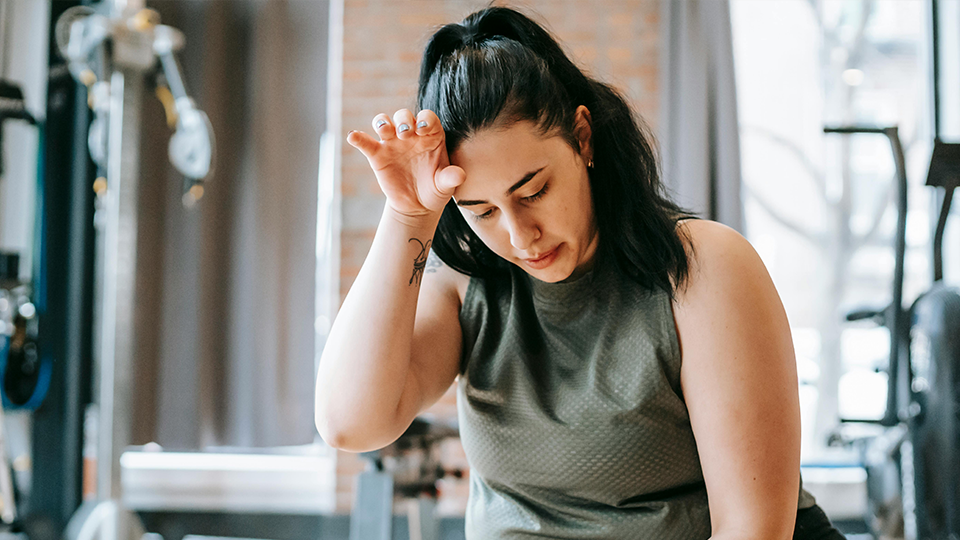Whether at home, work, or school, several priorities compete for a woman’s attention throughout her life. Health should be one priority that’s always at the top of the list.
A woman’s health can have an impact beyond her own well-being. Research shows that when women prioritize their health, it can lead to healthier choices for her whole family (1).
Good health starts with positive lifestyle choices and a nutritious diet. Making these decisions daily is a great place to start:
- Eating a nutrient-dense diet is important for everybody; however, it plays a unique role in women’s health. Eating a diet rich in fruits, vegetables, whole grains, healthy fats, and lean sources of protein is an essential first step to lay a good foundation for health.
- Drinking enough fluids throughout the day is another essential step to looking and feeling your best. Through different stages of life, women’s fluid intake needs may change. Talking with a doctor is the best way to determine if you are meeting your personal needs through each stage of life.
- Controlling calorie intake and maintaining a healthy weight is the best way to support a long, healthy and active lifestyle in your teens, twenties, and beyond.
- Daily physical activity has been among the best habits for overall health and wellness. A large body of research demonstrates that including some form of physical activity every day has benefits for brain health, weight management, and reducing the risk of chronic disease (2). Weight bearing activity is especially important for women of all ages to strengthen bones and muscles.
Beyond these healthy lifestyle habits, there are key nutrients women should focus on to support optimal health.
- Calcium and vitamin D: Bone health is an important aspect of health for all, particularly for women. Calcium plays a critical role in building and maintaining healthy bones (3, 4). Vitamin D facilitates calcium absorption in the gut. Additionally, vitamin D is associated with helping women retain lean muscle mass over time (5).
According to the National Osteoporosis Foundation supporting bone health should not just be a priority for older women but young women as well. Studies show that women who build bone strength through proper nutrition and supplementation as well as regular activity have better bone health later in life.
An easy way to make sure you are meeting your body’s daily calcium and vitamin D needs is through supplementation with Complete Essentials™ Daily Packs, which deliver four key supplements in convenient A.M. and P.M. packs. Essentials for Women™ is rich in calcium, and CytoActives™ provides nearly 4,000 IU of vitamin D3 per capsule. Both are included in Complete Essentials Daily Packs.
- Creatine: Athletes have long used creatine to get an extra competitive edge for over two decades, but new research suggests creatine’s benefits reach far beyond athletic performance. Creatine is the subject of investigation for its beneficial effects on the brain, aging, and even bones.
While creatine is often thought of as a supplement, it is provided in the diet through animal-based foods and meat. If you are working out daily, AMPED™ Nitro provides a substantial amount in each serving. AMPED™ Power is a great addition to a plant-based diet for a stimulant-free source of creatine.
- Omega-3 fatty acids: Omega-3 fatty acids, particularly as EPA and DHA, are important for supporting women’s heart health (6). The American Heart Association recommends that adults consume at least two servings of fish each week as a source of EPA and DHA. Unfortunately, a large, national nutrition survey showed that few are consistently meeting these recommendations (7). The researchers pointed out that American women had an especially low intake of fish or foods rich in omega-3 fatty acids.
Fatty fish, certain vegetable oils, and nuts are food sources of omega-3 fatty acids. IsaOmega™, a key supplement in Complete Essentials Daily Packs, provides a scientifically supported source of omega-3s.
Combining healthy lifestyle habits with a focus on key nutrients can help women of all ages feel their best so they can stay on top of all their priorities.
References:
- Dhana K, Haines J, Liu G, Zhang C, Wang X, Field AE, Chavarro J, Sun Q. Association between maternal adherence to healthy lifestyle practices and risk of obesity in offspring: results from two prospective cohort studies of mother-child pairs in the United States. BMJ. 2018;362:k2486. doi:10.1136/bmj.k2486.
- Center for Disease Control and Prevention. Benefits of Physical Activity. https://www.cdc.gov/physicalactivity/basics/pa-health/index.htm
- Cumming RG. Calcium intake and bone mass: A quantitative review of the evidence. Calcif Tissue Int (1990) 47: 194. doi:10.1007/BF02555919
- Shea B, Wells G, Cranney A, Zytaruk N, Robinson V, Griffith L, Ortiz Z, Peterson J, Adachi J, Tugwell P, Guyatt G. VII. Meta-Analysis of Calcium Supplementation for the Prevention of Postmenopausal Osteoporosis. Endocr Rev 2002; 23 (4): 552-559. doi: 10.1210/er.2001-7002
- The North American Menopause Society. “Vitamin D3 Supplementation Helps Women Build Muscle Even After Menopause” (press release). 30 September 2015. Available at: http://www.menopause.org/docs/default-source/2015/vitamin-d-supplementation.pdf
- Hu FB, Bronner L, Willett WC, et al. Fish and Omega-3 Fatty Acid Intake and Risk of Coronary Heart Disease in Women. JAMA. 2002;287(14):1815-1821. doi:10.1001/jama.287.14.1815
- Papanikolaou Y, Brooks J, ReiderC, Fulgoni VL. U.S. adults are not meeting recommended levels for fish and omega-3 fatty acid intake: results of an analysis using observational data from NHANES 2003–2008. Nutr J. 2014; 13: 31. Published online 2014 Apr 2. doi: 1186/1475-





